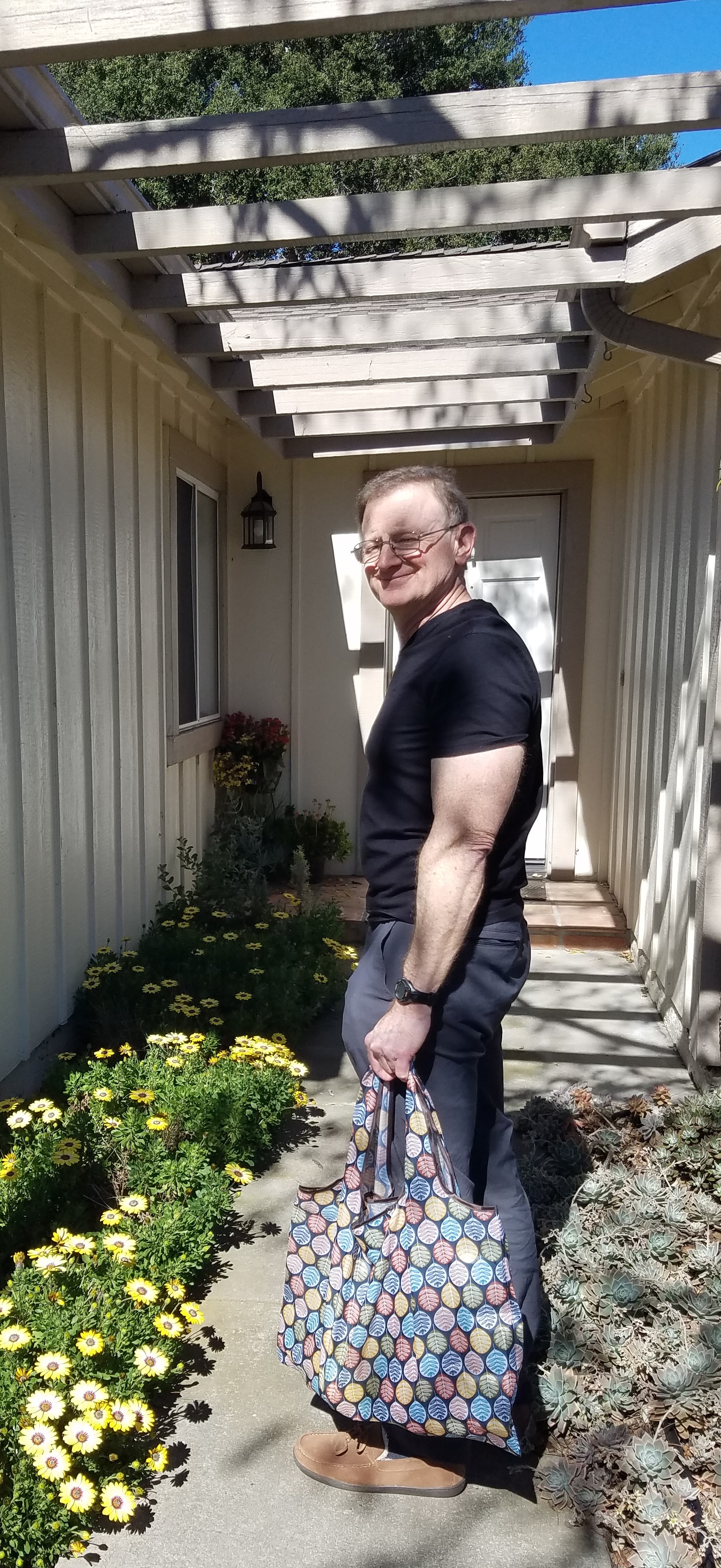Editor’s note: While it’s increasingly clear that the need for climate action is urgent, it can be hard for an individual to know where to start. This year we are featuring specific actions you can take authored by UCSB lecturer in Environmental Studies, Deborah Williams.
California has recently adopted a landmark plastics reduction law. While negotiations were intense and Sierra Club didn’t support all of the industry compromises, the legislation requires a 25% decrease in the sales of plastic packaging by 2032 and also demands that 65% of plastic be recycled by 2032.
America creates more plastic trash than any other nation in the world, and less than 9% is recycled. Annually, the average American throws away about 185 pounds of plastic.
There has never been a better time to reduce our individual use of plastic. Here are easy and effective steps to do so.
Reducing or eliminating plastic containers. These are some simple and positive changes:
- Instead of utilizing big plastic bottles, use laundry detergent pods that come in small cardboard boxes: like Dropps, Blueland, Tru Earth, Biokleen, and Meliora. Added benefits: pods are much less messy and take less shelf space than big plastic laundry containers.
- For the same reasons, try dishwashing and descaling pods and powders like LemiShine, Dropps, Blueland, Ecover, & Beyond.
- Enjoy using hand soap
- Embrace shampoos and conditioners that have zero or near zero plastic waste like Humankind and Sustainable Jungle List. Same thing with deodorants, like Shape’s Best Zero Waste Deodorants, Good Housekeeping List and Sustainable Jungle List.
- Try toothpaste, dental floss and mouthwash that have no or minimal plastic waste, like Bite, Humankind, and Byrdie Best 2021.
- Find refillable cleaning solutions as well as bath and body products at stores like The Refill Shoppe in Ventura, CA.
Storing food without plastics. To reduce plastics, and also for health reasons, it is great to store food and leftovers in reusable containers, instead of reaching for single use plastic bags or plastic wrap. Here are some win/win possibilities:
- Glass containers let you see what is inside easily, and have fewer health concerns than plastic containers. There are also reusable storage bag options.
- Cover bowls with a silicone lid ore beeswax covers instead of single-use plastic wrap.
- Try reusable sandwich bags.
- When you shop, by-pass single-use-plastic fruit and vegetable bags and either go without a bag (you will be washing the fruits or vegetables anyway) or use reusable produce bags.
Just say “no” to plastic water bottles and other plastic beverage bottles. Collectively, Americans buy approximately 50 billion disposable water bottles annually, which require more than 17 million barrels of oil to produce, not including transportation. Furthermore, a study found microplastics in 93% of tested bottled water. What’s more, drinking bottled water is expensive. The average yearly water bill associated with drinking 8 glasses of tap water a day is approximately 50 cents; but the same amount of bottled water costs around $1,400 annually. A few good strategies include:
- Carry and drink from a reusable, BPA-free beverage bottle. Here are some “best of” lists: Best According to Hyperenthusiastic Reviewers (New York Magazine); 8 Best (New York Times); 7 Best (Good Housekeeping).
- If you want flavor, vitamins and or electrolytes in your water, just add powder or tablets to the water in your reusable water bottle. There are many highly rated options, including lists from: 99Boulders; Rolling Stone; Yoga Journal; and Influenster.
Be Sure to Bring Your Own Bags When Shopping. Single use plastic and paper bags are a serious problem for our environment. In the US, manufacturing plastic bags requires approximately 2.2 billion pounds of fossil fuel as well as 3.9 billion gallons of fresh water annually, while producing 2.7 million tons of carbon dioxide and a billion pounds of solid waste. Over 1 million marine animals are killed by plastic bags each year. Using you own bags is fun and easy – and important.
ADDITIONAL MOTIVATION THOUGHTS
There are many more reasons to “ditch plastics.”
As noted by the Endocrine Society: “plastics contain and leach hazardous chemicals, including endocrine-disrupting chemicals (EDCs) that threaten human health…. Many of the plastics we use every day at home and work are exposing us to a harmful cocktail of endocrine-disrupting chemicals."
The oil industry makes more than $400 billion a year producing plastic, and the industry is telling shareholders that future profits will increasingly come from plastic.
For all of these reasons and more, the time to reduce plastic use is now.
